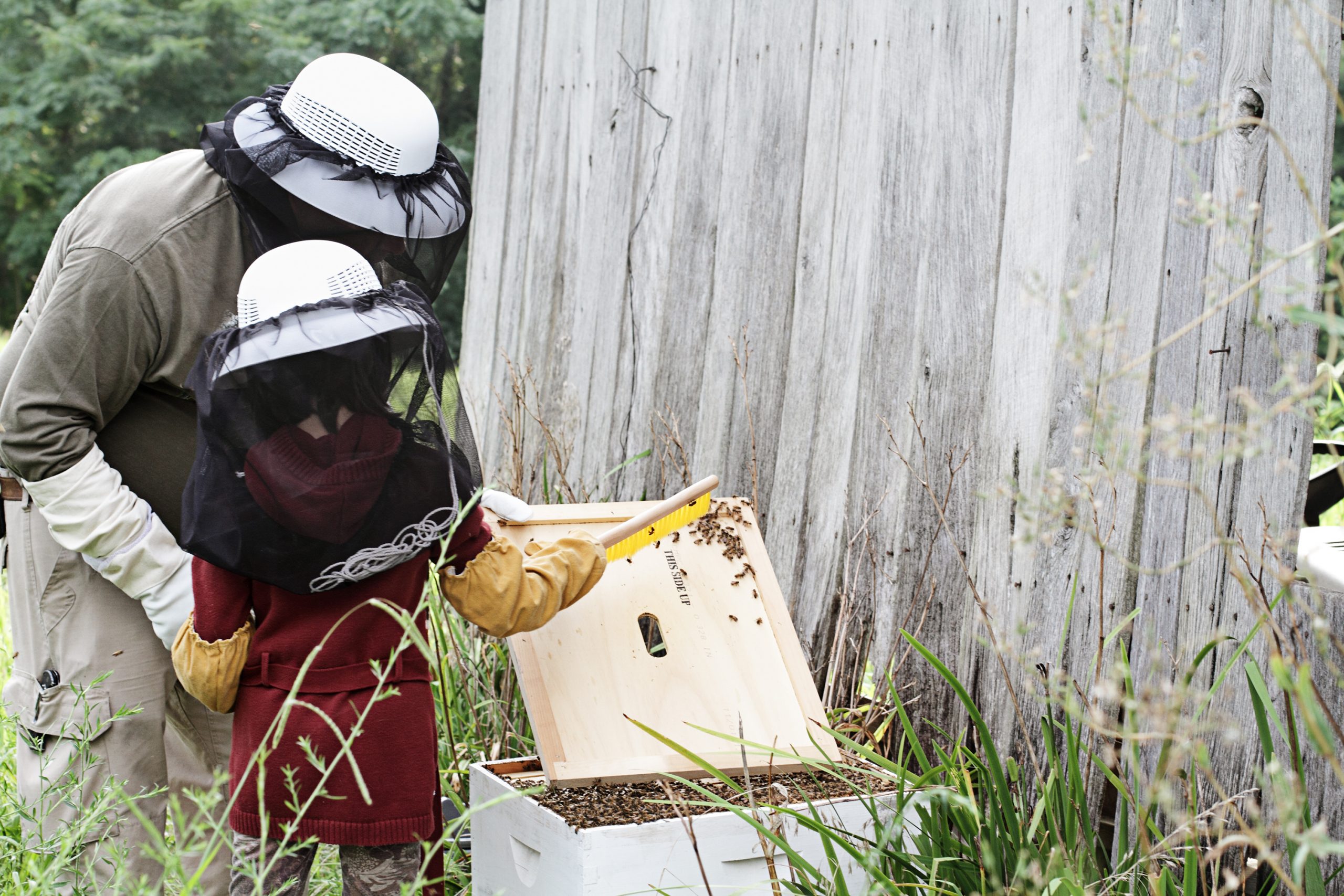Catholic Educator Heeds Pope’s Call for Honeybees
June 09, 2016
Bee Colony Collapse, Honey, Honey Bees
Not too long ago, Pope Francis threw his hat into the ring when it came to the issue of declining honeybee populations, specifically calling for a dialogue about “how we are shaping the planet” and also that families embrace an ecological culture. Megan Ryan, a Catholic Indiana special education teacher and environmentalist, has taken up the challenge of uniting ecological awareness with education—two fields of study she knows very well. To do this, Ryan and her business partner Alex Cornwell have started the Southwest Honey Company, the fruit of which is affordable, “adventure-style” educational programming for kids 6-18 years of age and adult social events—all of which furthers the organization’s mission to support global honeybee populations.
This company, housed on land where Ryan and Cornwell grew up, offers hands-on activities meant to pique children’s interest and encourage experiential learning and exploration—marking them as “little adventurers,” as Ryan calls them, whom she believes will find their natural curiosity quenched by the programs. “We really want students to walk away excited about pollinators,” Ryan said. “We want them to realize you don’t have to be a beekeeper to help the bees.”
Ryan started this company with the understanding of what honeybees face in this day and age—that their populations are declining due to diseases, invasive pests, pesticides, and the mysterious colony collapse disorder (CCD). As a species that relies heavily on honeybees, Ryan knows how drastically our lives would change without them, with their honey valued at more than $14 billion annually in the US alone, according to a Cornell University study.
Crops from nuts to vegetables and as diverse as alfalfa, apple, cantaloupe, cranberry, pumpkin, and sunflower all require pollination by honeybees, even the bees are in decline. As per her Catholic beliefs, Ryan sees their plight as “a wakeup call from God to change our ways.” She also stated, “You have to care about all of it…That means respecting and caring for all forms of life—not just human beings.”
At this time, Ryan hopes to continue making an impact in and outside the classroom and that her approach will serve her well as she forwards her company’s mission. She has actually just received a grant from the USDA’s North Central Region SARE (NCR-SARE) to study the “symbiotic relationship between farmers, ranchers, and honeybees through consumer education.” The study will evaluate the direct impact and correlation between activity-based educational experiences and the choices people make to participate in active conservation of their natural environment in the community and at home.


.jpg)



